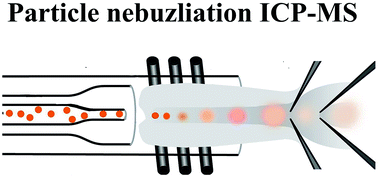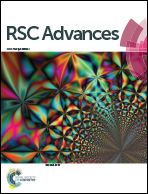Analysis of rice and wheat flour by particle nebulization ICP-MS
Abstract
Analysis of toxic elements in food samples (e.g., rice and wheat) is very important for human health. A direct nebulization of solid particles for inductively coupled plasma (ICP) ionization and subsequent analysis of toxic elements (i.e., As, Cd, Hg, and Pb) by mass spectrometry (MS) was developed. Dried and well-ground food particles (mean size of 0.9–1.0 μm) were stably dispersed in 0.5% polyethylene-imine (PEI) and the particle slurries were analyzed by ICP-MS using aqueous standard calibration. The transportation and ionization behaviors of particles with different particle sizes in ICP-MS were compared with those of aqueous standards containing equivalent concentrations of the analyte. The results indicated that the upper limits of particle sizes for the efficient transportation and complete ionization were 7.5–8.0 μm and 3.3–3.5 μm, respectively. Satisfactory recovery (94–107%), and precision (0.4–6.5%, RSD, n = 3) were verified by analyzing a series of rice and wheat standard reference materials (SRMs). The limits of quantitation (LOQs, 1.1 ng g−1 (Hg) to 3.5 ng g−1 (As)) are compared with the traditional microwave-assisted acid digestion ICP-MS method, however, the analysis throughput of the proposed method is improved by more than 10 times.



 Please wait while we load your content...
Please wait while we load your content...